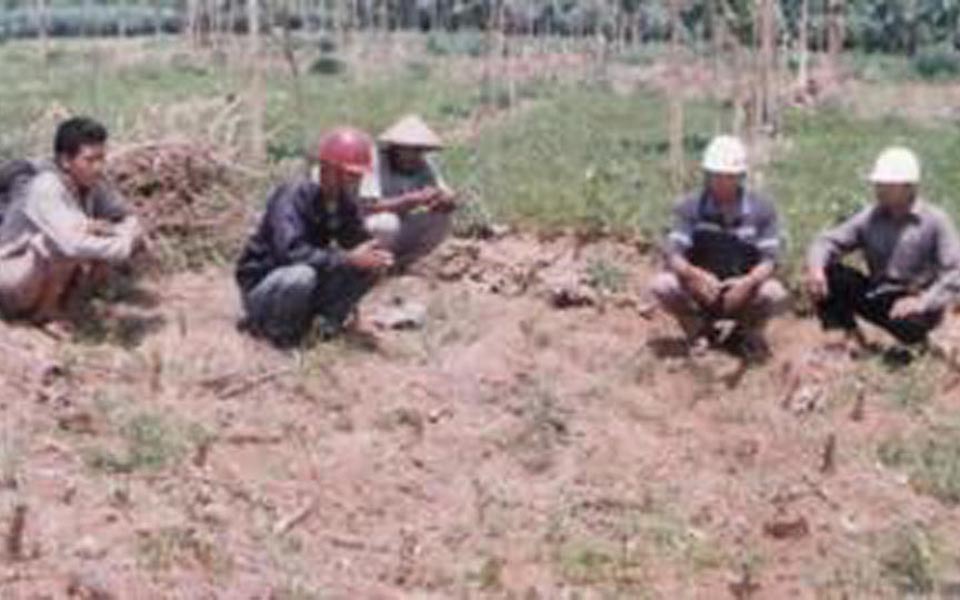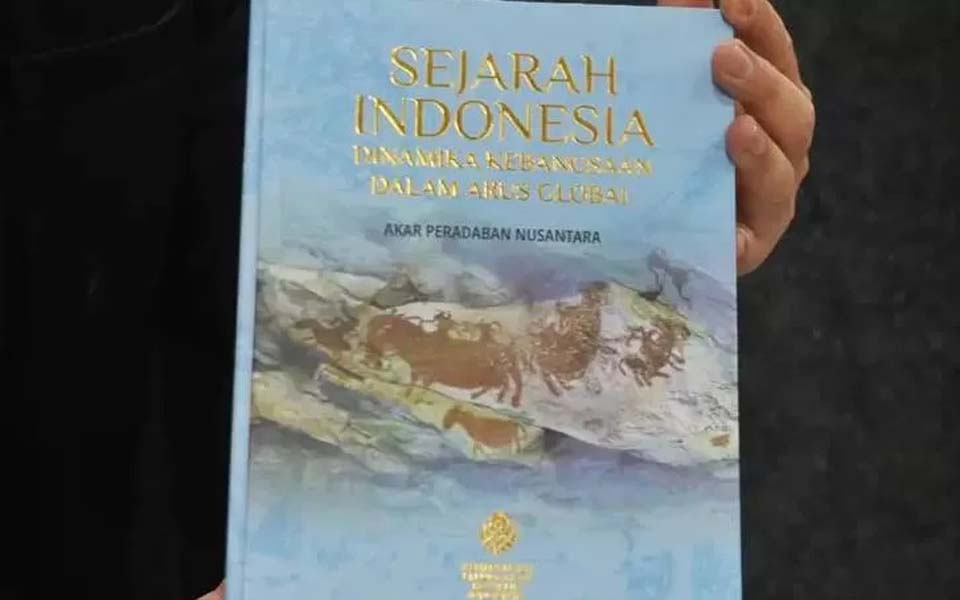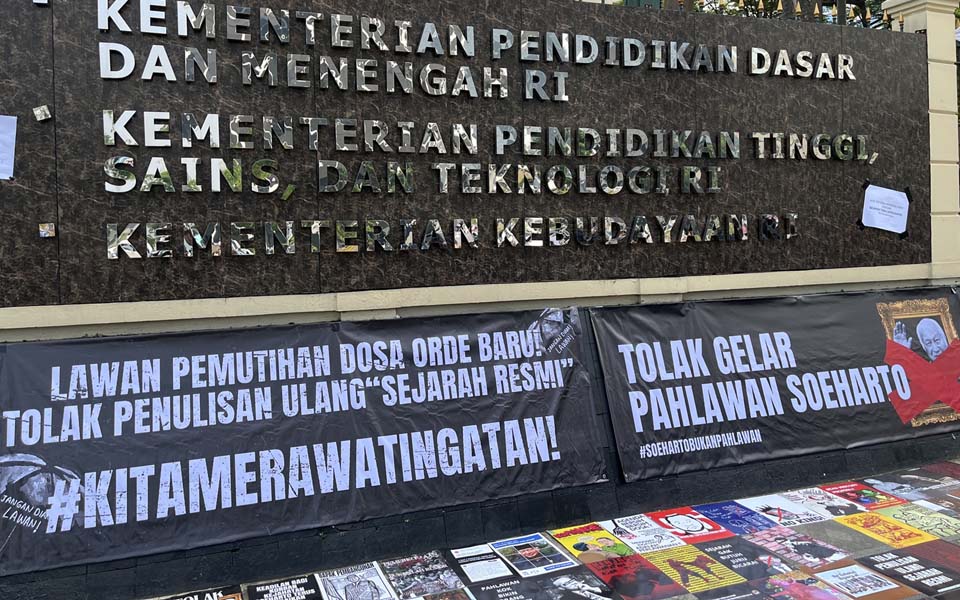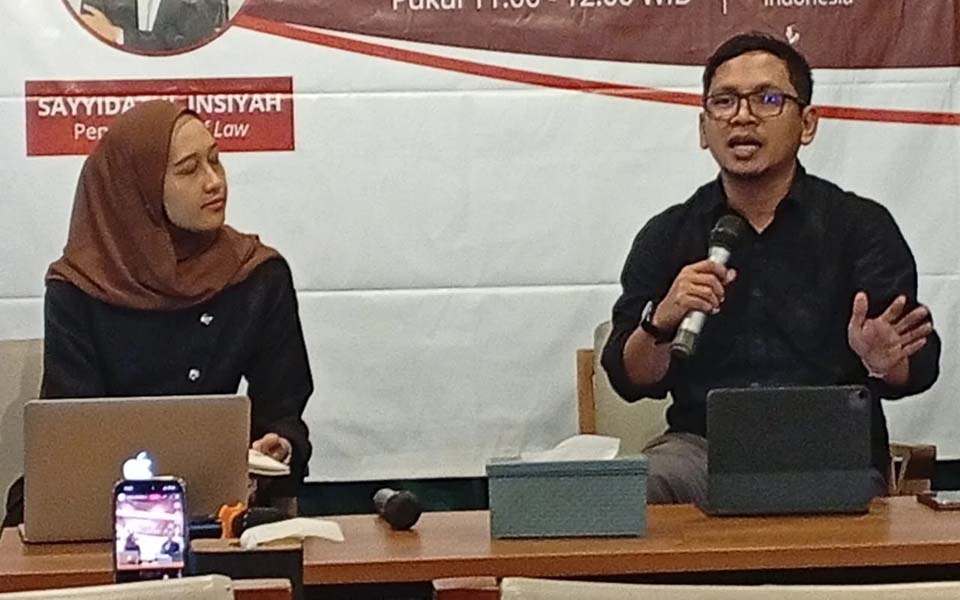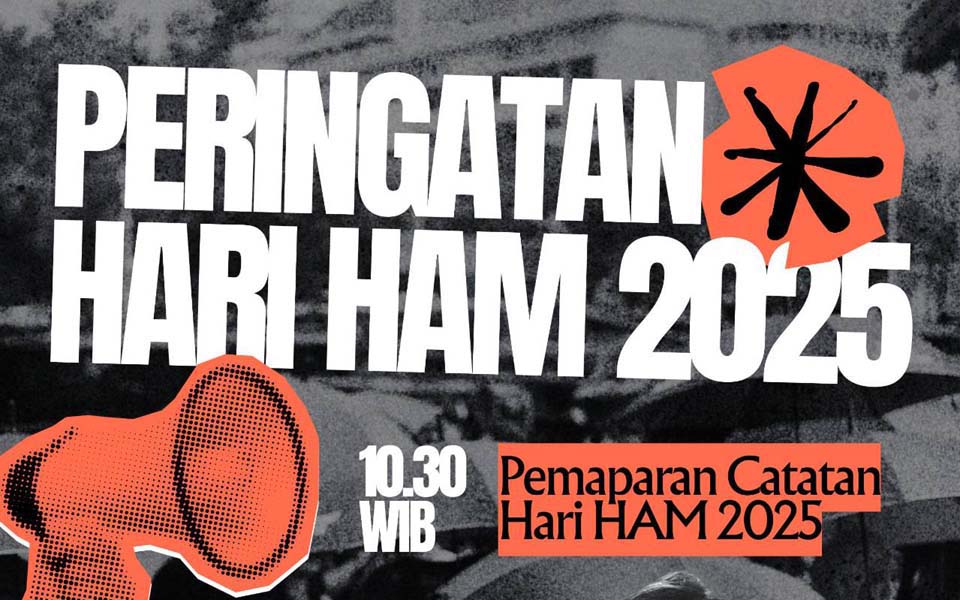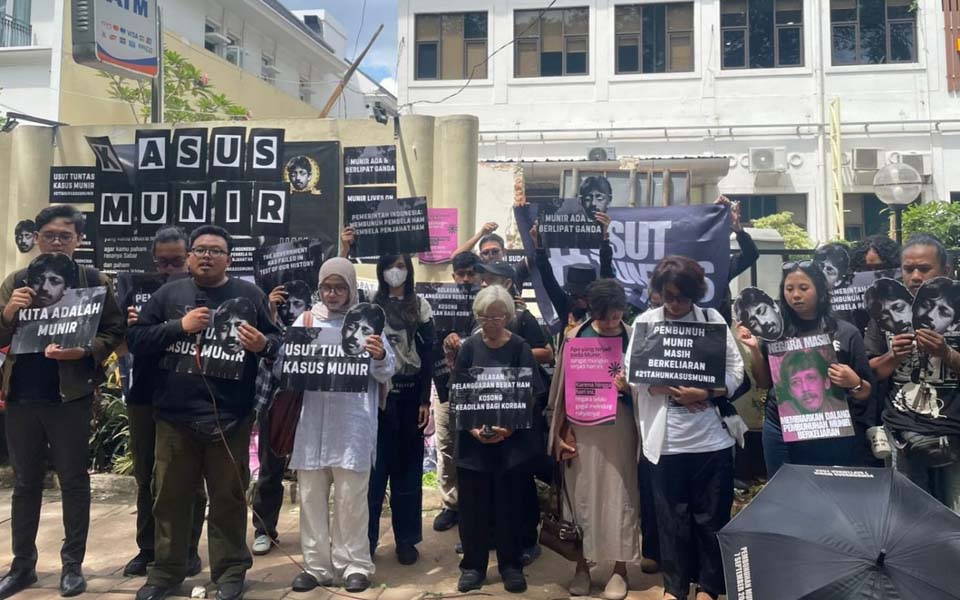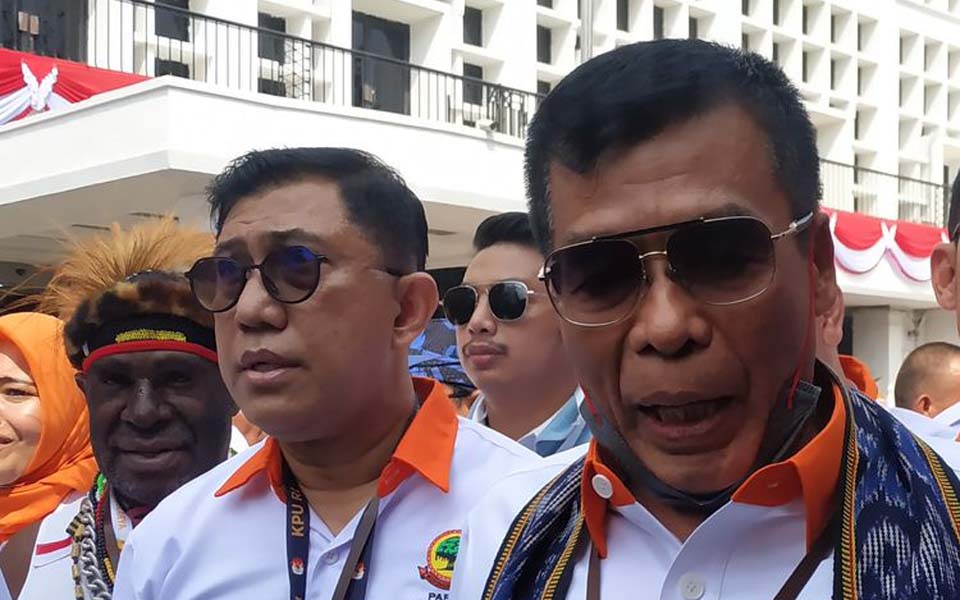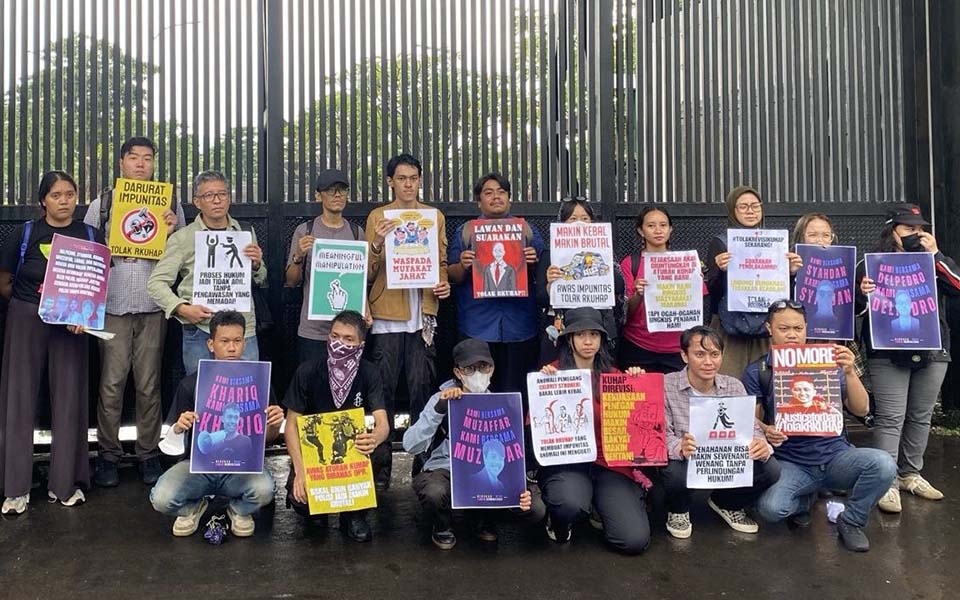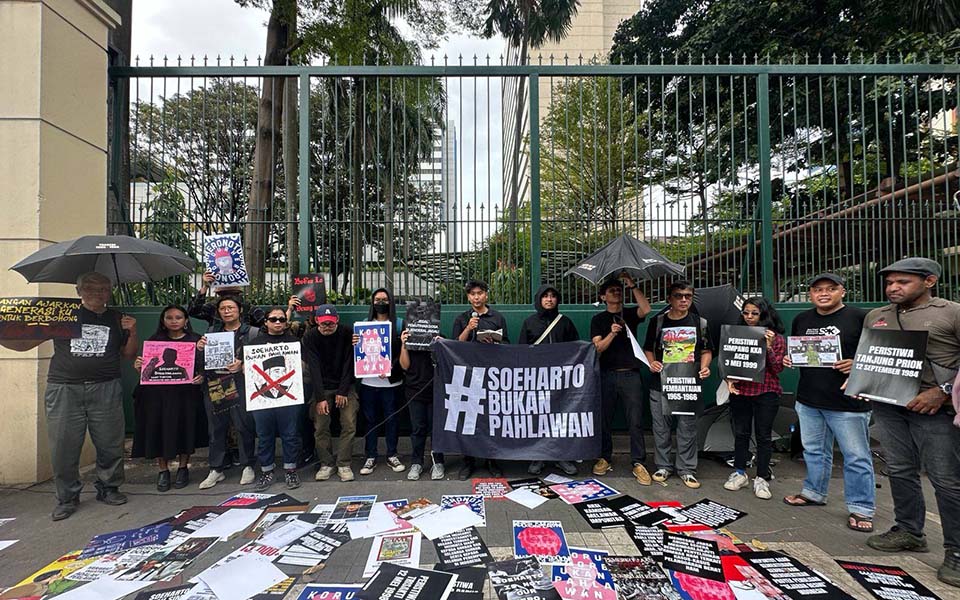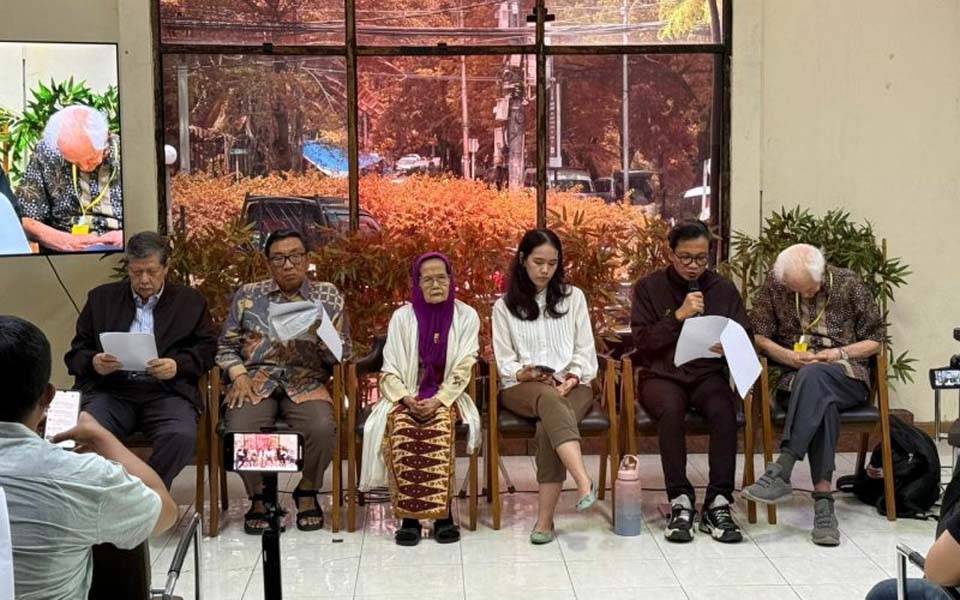Heyder Affan – A number of locations in the vicinity of Purwodadi, Central Java, have been confirmed as sites of mass grave, places where bodies were disposed of and sites where people accused of being members or sympathisers of the Indonesian Communist Party (PKI) were executed in the months after October 1965.
The Institute for the Study of the 1965-1966 Massacres (YPKP 65) says that they have found 16 different sites in Purwodadi and surrounding areas which were used as graves for around 5,000 people who were “labeled as PKI” and strongly suspected of being murdered by armed civilian groups on the orders of the military after October 1965.
The existence of the mass graves and estimations on the total number of bodies are based on the testimonies of eye witnesses, direct investigations on the ground and an analysis by the YPKP team.
“Our calculations are based on witness testimonies who revealed that every night, as many as 50 tapols (political prisoners) were taken from detention centres each night. This (occurred) every day for three months”, said YPKP activists Bedjo Untung on Wednesday November 15.
The YPKP also claims to have discovered mass graves in Purwodadi which were “referred to” in research conducted by human rights activists Poncke Princen in 1969, which is cited as being the first report released to the public on the existence of suspected mass graves in Purwodadi.
On the afternoon of Wednesday November 14, the YPKP’s findings in Purwodadi were given to the National Human Rights Commission (Komnas HAM) in Jakarta. They also requested that the Komnas HAM follow up the findings.
The foundation believes that although the Komnas HAM has already acknowledged the existence of mass graves from 1965 in various parts of the country, these findings have never been seriously followed up by the government. As a result, the human rights violations that took place post-1965 have never been resolved and there is still no clarification on the issue.
Moreover there has been strong opposition from the TNI (Indonesian military) as well as some Islamic groups and people referred to as being anti-communist who consider the affair “to been resolved” and “does not need to be brought up again”.
These groups have rejected outright a number of efforts to seek resolution and reconciliation such as the Indonesian Legal Aid Foundation (YLBHI) seminar in Jakarta in September [which was closed down by police and anti-communist groups].
Bedjo Untung further said that the 16 locations of the mass grave sites in Purwodadi represent the “largest” of the 122 other mass graves which are spread across Central Java, Banten (West Java), East Java and Bali.
“They are most likely people who were labeled PKI who originated from Blora and Kudus [in Central Java]. They were sent to Purwodadi, perhaps because it was a strategic place, lots of forest and ravines”, he said.
50 people were taken every night
One of the eye witnesses interviewed by the YPKP was Kandar Sumarno, a man born in 1940 and a resident of the Toroh sub-district in Grobogan, Central Java, who is a survivor of the violence post-October 1965.
“I saw it with my own eyes, every Saturday night, there were 50 people who were taken (who were labeled members or sympathisers of the PKI) to be executed. They were taken to the Monggot (Forest)”, Kandar told BBC Indonesia.
The Monggot Forest is one of the locations that the YPKP has confirmed as being one of the 16 mass graves in the Purwodadi area. Others include the Ganjing River, the Glugu River, the Simo Dam, the Langon Dam, Sendang Tapak, Daplang, Tego Wanu, Kedung Jati, Mojo Legi and the Sanggarahan Forest.
“I saw myself there were trucks entering and leaving the detention centres”, said Kandar when asked if he had actually witnessed people being “executed”.
At the time when the “detainees were picked up by trucks”, Kandar claimed that he was inside the “detention area” in a building at the Toroh sub-district offices.
Kandar was detained because he was a local branch administrator of the Indonesian Peasants Front (BTI) – an organisation deemed to be affiliated with the PKI.
When asked how he could confirm that the people that were “picked up” were then executed, Kandar explained that this was based on information from the families of people who were picked up and then “never returned”.
Bedjo Untung also cited the testimony of a child that accompanied his grand-father washing scores of bodies of those who had been “executed”.
The response from Ansor?
The Ansor Youth Movement (GP) that manages the Barisan Ansor Serbaguna (Banser), the paramilitary youth wing of the Islamic mass organisation Nahdlatul Ulama (NU), is one of the mass organisations that has been cited as being “involved” in the post-October 1965 vilence, particularly in Central and East Java.
Several leaders of the NU and its affiliated youth organisations have carried out reconciliation efforts with former 1965 political prisoners and their families, such as those undertaken by the Syarikat Indonesia – an organisation established by NU youth activists and the NU in 2000.
Speaking to BBC Indonesia, one of the chairs of GP Ansor, Nuruzzaman, said that his organisation has for some time being carrying out what he referred to as “cultural reconciliation” with former 1965 political prisoner and their families.
“Cultural reconsolidation without it being formalised. There is a great deal of evidence [if its success], for example pesantren [Islamic boarding schools] that during the New Order regime [of former president Suharto] who would not give an opportunity to children of former PKI tapol, now accept them willingly”, said Nuruzzaman.
According to Nuruzzaman, the violence that took place post-October 1965 cannot be seen as an affair that “stood alone” because there were other causes, such as, the 1948 [Madiun] affair when NU kyai [Islamic clerics] were victims of unilateral actions carried out by the PKI”.
“So, the NU’s response, aside from the NU being ‘provoked’ and ‘facilitated’, also had a historical burden of suffering the PKI’s ‘slaughter’ of us”, he said.
It is because of this that Nuruzzaman is inviting all former 1965 tapols to look towards the future without “revisiting and bringing up” the past. “Come one let’s look to the future together, let’s forget the past”, he asserted.
[Translated by James Balowski. The original title of the article was Ditemukan ‘kuburan massal korban kekerasan 1965’ di Purwodadi, Jawa Tengah.]





